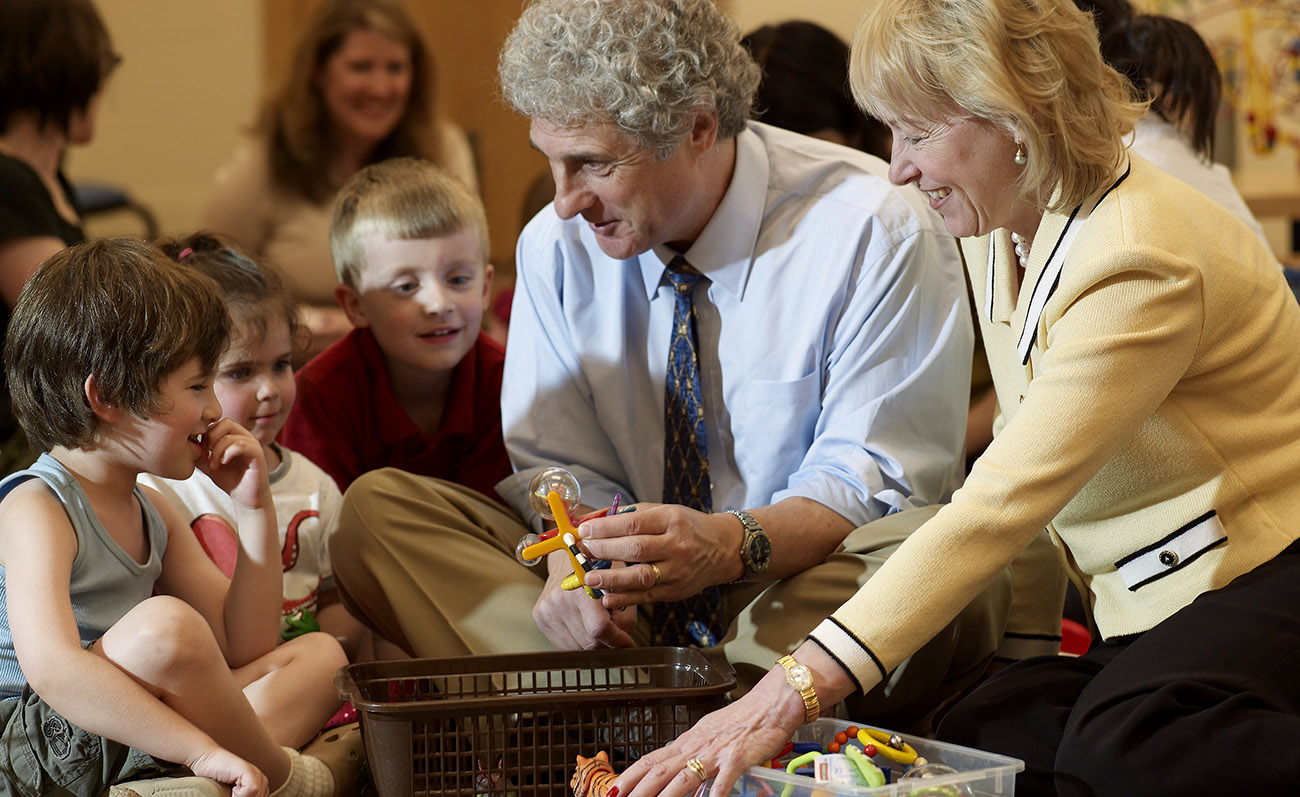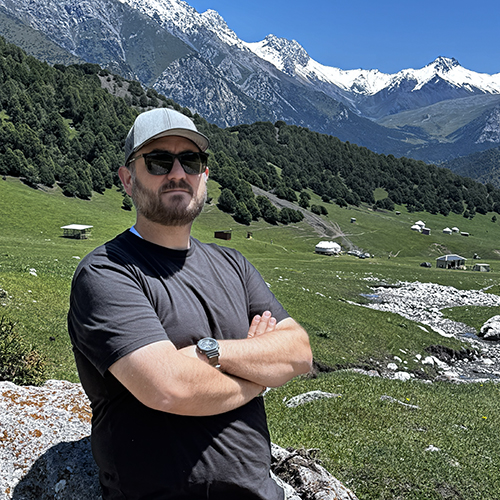The teenage brain is mysterious. (Ask any parent.) The UW Institute for Learning & Brain Sciences (I-LABS) hopes to learn more about the brains of adolescents and teenagers and link this new work to earlier breakthrough discoveries on infant brain development, thanks to a new grant from the Bezos Family Foundation.
“The Bezos Family Foundation is providing the rocket fuel to launch a broad range of innovative new studies,” says Andrew N. Meltzoff, Job and Gertrud Tamaki Endowed Chair and professor of psychology, who co-directs I-LABS with Patricia K. Kuhl, the Bezos Family Foundation Endowed Chair in Early Childhood Learning and professor of speech and hearing sciences. “I-LABS’ ongoing work on the baby brain uncovered principles about how young brains learn during critical periods in development — we argue that these same principles of human learning will help us understand what’s happening during the teenage years,” says Kuhl.

I-LABS is a world-renowned interdisciplinary center dedicated to discovering fundamental principles of human learning from birth through adolescence, with an emphasis on helping children achieve their full potential. I-LABS faculty, students, and postdocs study children’s brain, cognitive, social-emotional, linguistic, and motor development and how these different streams interact as the child grows. In the area of brain science, their primary tool is magnetoencephalography (MEG), a brain-imaging device that measures brain function. They also use magnetic resonance imaging (MRI) and magnetic resonance spectroscopy (MRS) to understand the connectivity and the basic biochemistry that creates the brain networks involved in complex reasoning and social-emotional processing.
Through the new Bezos Family Foundation five-year $16 million grant, I-LABS will combine these neuroscience tools in innovative ways for a more comprehensive exploration of the human brain. The grant will support I-LABS’ studies within two important periods of development, each with significant brain and psychological transitions—early learning (from birth to 5 years old) and adolescence (9-19 years of age).
To talk to the Bezos team about science is exhilarating, because they light a fire under scientists and share the excitement of achieving the next big breakthrough.
“We believe that the brain undergoes a second transformation in adolescence, akin to what the young infant does in the first years of life,” Kuhl explains. “We hypothesize that the revolution in the brain during adolescence provides a second opportunity to understand neuroplasticity; how brain, mind, and cultural contexts interweave to form the individual.” As I-LABS scientists better understand how people learn, they hope to enable “precision learning,” an approach that shapes learning opportunities for individuals based on their own brain development.
Creating more impactful learning opportunities for children is a priority for the Bezos Family Foundation. Recognizing I-LABS’ role in improving learning outcomes for children, the Foundation has been a long-time supporter of the Institute’s work, including a previous grant. “To talk to the Bezos team about science is exhilarating, because they light a fire under scientists and share the excitement of achieving the next big breakthrough,” says Meltzoff. “The Bezos Family Foundation doesn’t want scientific discoveries just sitting on the shelf. They envision a seamless transfer between basic science and translational science in which evidence-based work drives helpful programs in homes and schools.”
In addition to the I-LABS grant, the Bezos Family Foundation is funding a Distinguished Professorship in Language Acquisition and Multilingualism in the UW Department of Linguistics for I-LABS scientist Naja Ferjan Ramirez, who specializes in research on the bilingual brain. Ferjan-Ramirez will continue her scientific collaboration with I-LABS, and help build stronger links between the Department of Linguistics and I-LABS.
. . .
More Stories

AI in the Classroom? For Faculty, It's Complicated
Three College of Arts & Sciences professors discuss the impact of AI on their teaching and on student learning. The consensus? It’s complicated.

A Sports Obsession Inspires a Career
Thuc Nhi Nguyen got her start the UW Daily. Now she's a sports reporter for Los Angeles Times, writing about the Lakers and the Olympics.

Through Soil Science, an Adventure in Kyrgyzstan
Chemistry PhD alum Jonathan Cox spent most of 2025 in Kyrgyzstan, helping farmers improve their soil—and their crops—through soil testing.